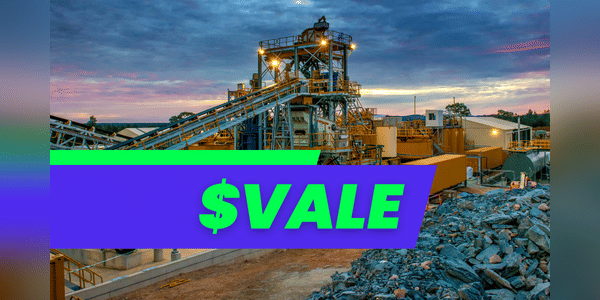A mining company with a high dividend, big geopolitical risk and a wild history? That's exactly the VALE we're looking at today!

VALE $VALE is a Brazilian mining company that focuses on a portfolio of many metals, including nickel, copper, cobalt, platinum, rhodium, ruthenium, iridium, gold and silver. It is a company that has demonstrated slow and steady growth through 2026.
It also produces and exports iron ore and pellets, nickel, manganese ore, copper, ferroalloys, metallurgical and thermal coal, copper and cobalt. The company also produces platinum group metals and other precious metals such as gold and silver. But interestingly, it also secures some of the infrastructure. It operates logistics systems in Brazil and other regions of the world, including railways, marine terminals and ports. The company owns and operates a distribution center to support iron ore shipments around the world. It also invests in energy and steel businesses through its subsidiaries and joint ventures. The…